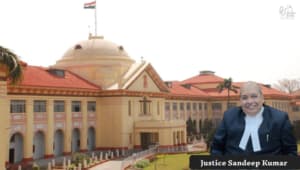The Supreme Court on Wednesday dismissed an appeal by Jemaben, confirming her life imprisonment for burning her niece-in-law, Leelaben, alive in Banaskantha district, Gujarat. The bench of Justice Rajesh Bindal and Justice Vipul M. Pancholi upheld the Gujarat High Court’s 2016 order that had reversed the earlier acquittal, terming the evidence “clear, consistent, and supported by the first dying declaration.”
Background
The case dates back to the night of November 29, 2004, when Leelaben and her 4-year-old son were asleep in their hut. According to the prosecution, Jemaben and a co-accused, Bherabhai Revaji Majirana, conspired to kill the mother and child. Jemaben allegedly poured kerosene on Leelaben and set her on fire.
Leelaben was taken to the Civil Hospital in Palanpur with 100% burn injuries and died five days later. Her son survived with 10–12% burns.
A complaint was lodged by Leelaben’s sister, Geetaben, leading to a charge sheet under Sections 302 (murder), 307 (attempt to murder), and other sections of the IPC. In 2005, the trial court acquitted both accused, citing contradictions in three dying declarations. However, the State appealed, and the Gujarat High Court convicted Jemaben in 2016.
Court’s Observations
During the hearing, the Supreme Court examined the first dying declaration made to Dr. Shivrambhai Nagarbhai Patel (PW-3), the in-charge medical officer. According to the doctor, the victim clearly said, “My aunt-in-law, Jemaben, poured kerosene on me and set me ablaze.”
The Court noted that the doctor found the victim “conscious and able to speak,” and had immediately informed the police to record a formal statement.
The bench pointed out that an empty kerosene tin and burnt soil with a strong smell of kerosene were found at the scene, reinforcing the prosecution’s version. The judges also highlighted that the child, sleeping beside the deceased, had minor burns - inconsistent with the defence’s claim of an accidental fire.
“The theory of accidental fire cannot be believed,” the Court remarked, adding that minor discrepancies in multiple dying declarations cannot overshadow the first declaration made before an independent medical witness.
The bench cited Nallam Veera Stayanandam v. Public Prosecutor (2004), reaffirming that when the dying declaration is voluntary, consistent, and medically supported, it can form the sole basis of conviction.
Decision
Concluding that the High Court had “rightly appreciated the evidence” and that the trial court’s acquittal was “perverse,” the Supreme Court refused to interfere.
“The High Court has rightly set aside the order of acquittal rendered by the trial court,” the bench said, dismissing Jemaben’s appeal.
With that, Jemaben’s life sentence and ₹10,000 fine stand confirmed, closing a legal battle that lasted nearly 21 years since the crime.
Case: Jemaben vs State of Gujarat (2025)
Case Type: Criminal Appeal No. 1934 of 2017
Court: Supreme Court of India
Bench: Justice Rajesh Bindal and Justice Vipul M. Pancholi
Origin: Appeal against Gujarat High Court’s 2016 order
Date of Judgment: October 29, 2025













